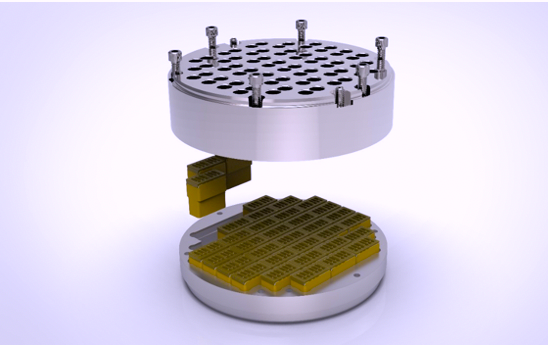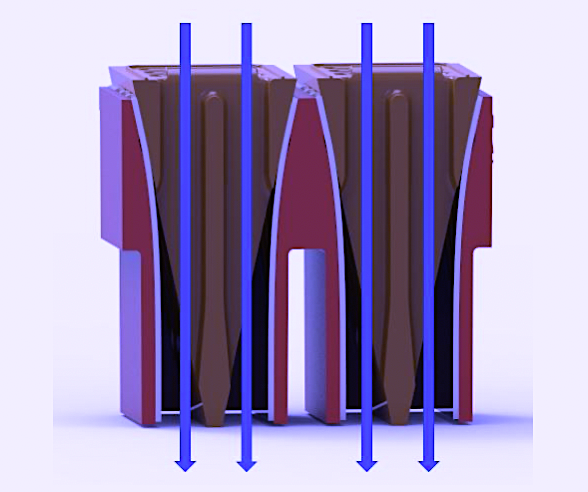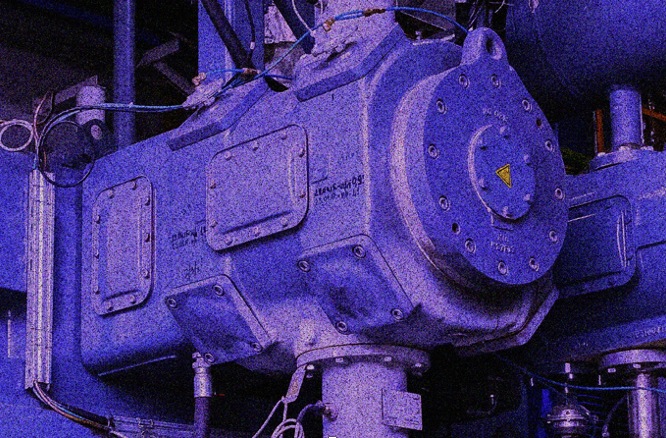The main function of reciprocating compressor valves is to control flow in and out of a compressor’s cylinders. Valves are critically important components in that their functional integrity usually governs the availability, reliability, and efficiency of positive gas-displacing machines. Moreover, statistics compiled by manufacturers and end-users place valves at the top of the list of failing components in reciprocating compressors.
Four or five types or valve configurations are normally used in reciprocating compressors. Except for suction-valve unloaders, which use mechanisms to physically keep a valve open during part or the entire stroke length or piston travel, valves are actuated by differential gas pressure. They open when the pressure on one side of the cylinder is greater than the pressure on the opposing side
The compressor designer’s and knowledgeable user’s choice of valve depends largely on the characteristics or parameters of a process application. While valve type and size are specified by the compressor manufacturer, the user-purchaser must be involved in valve selection. Selection involves trade-offs. For example, a given configuration may have better efficiency, but needs more maintenance. On the other hand, the compressor OEM and/or valve manufacturer may believe that unless the marketplace demands it, there is no incentive to change their present spare parts-oriented business models. It follows that some manufacturers may continue to provide valves that do not represent best available technology.
Although new valve designs don’t enter the marketplace very often, some designs do find new uses over time. One such example, introduced in 2014, gained rapid acceptance in upstream oil & gas applications. Today, it’s finding new uses in downstream applications.
Note that the following details are not an endorsement of that product (which I wrote about, albeit in rather general terms, in a short Aug. 20, 2020, “Tech Review” for The RAM Review). My point in this somewhat expanded review is that with owner-purchasers/end-users likely being the most reliability-focused of the various entities dealing with valves, they could benefit from a fuller understanding of Modular Reed Valves (Zahroof StraightFlo valves, Fig. 1). Many of these components are now installed in oil refineries and hydrogen compressors, with power ratings approaching 20,000 hp. About 15,000 have found successful use in Ariel and similar reciprocating compressors.

Fig. 1. Zahroof Modular Reed Valve (source: Zahroof Valves, Inc., Houston, TX).
In traditional (“legacy”) valves, the gas must travel around corners, which causes efficiency decays due to pressure loss. In a Modular Reed valve, though, the gas path is unobstructed. Also, the differential pressure needed for a valve to open is considerably less in Modular Reed Valves than in legacy valves. When these parameters combine with demonstrable life extensions, the overall advantages are difficult to ignore.
The underlying design principle of a Modular Reed valve is captured in the term Straight-Through Flow (or StraightFlo, Fig. 2.). Although these designs are placed in the category of Reed Valves, their use of high-performance polymers and truly modular elements of construction distinguish them from most other valves.

Fig. 2. Two through-flow (“StraightFlo”) elements illustrate the design principle of
Zahroof’s Modular Reed Valves (source: Zahroof Valves, Inc., Houston, TX).
End-user feedback and operating experience have been telling. Significant life extensions have been verified, as have energy savings. Maintenance savings are linked to the valves’ significant self-cleaning capability and the fact that cleaning by a maintenance worker with a water hose at standard pressure is possible and takes only minutes. These valves are worth a closer look. For more information, visit zahroofvalves.com.TRR
Editor’s Note: Click Here To Download A Newly Updated List Of Heinz Bloch’s 24 Books
ABOUT THE AUTHOR
Heinz Bloch’s long professional career included assignments as Exxon Chemical’s Regional Machinery Specialist for the United States. A recognized subject-matter-expert on plant equipment and failure avoidance, he is the author of numerous books and articles, and continues to present at technical conferences around the world. Bloch holds B.S. and M.S. degrees in Mechanical Engineering and is an ASME Life Fellow. These days, he’s based near Houston, TX.
Tags: reliability, availability, maintenance, RAM, reciprocating compressors, valves, reed valves
Blah, Blah



